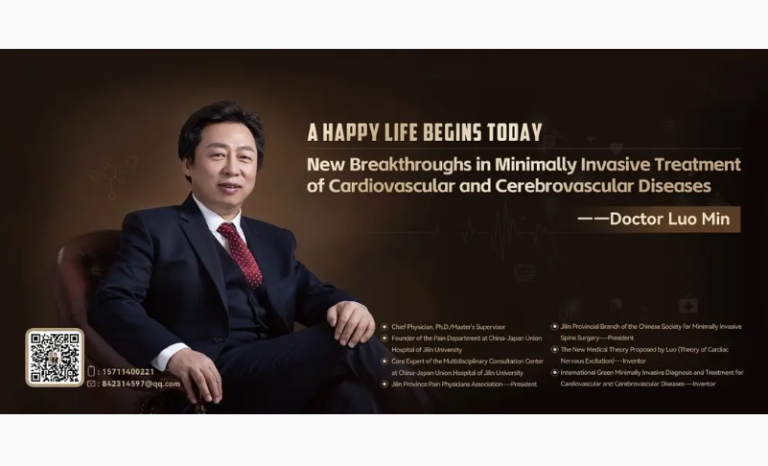A prominent Chinese medical expert will present a groundbreaking theory on heart disease treatment at the 36th World Congress on Cardiology and Heart Disease, taking place in London on 17-18 October 2024. Professor Luo Min, from Beijing Yuhe Integrated Traditional Chinese and Western Medicine Rehabilitation Hospital, will introduce his original neural excitation theory, which could revolutionise how coronary heart disease is treated globally.
Professor Luo’s research has been accepted for an oral presentation at the event, where he will discuss his findings in a session titled “The Newest Advances in the Prediction and Prevention of Coronary Heart Disease in Our Research.” His work focuses on a novel approach to treating heart disease by regulating the nervous system, potentially reducing the need for invasive surgeries and improving patient recovery.
The research is expected to have wide-reaching implications. Professor Luo’s findings suggest that abnormal spinal nerve function could lead to spasms, contractions, and narrowing of the coronary arteries, which causes reduced blood flow to the heart, or myocardial ischemia. In particular, his theory highlights the overlooked role of the thoracic sympathetic nerve in triggering coronary artery contractions, which can result in heart attacks or heart failure.
“Heart disease treatment shouldn’t rely solely on surgery,” Professor Luo stated. “My research suggests that regulating the nervous system could be a key future breakthrough. By integrating theories from various medical disciplines, I am delighted to introduce the concept of interdisciplinary holistic medicine.”
Professor Luo’s neural excitation theory suggests that by controlling the excessive activity of these nerves, doctors may be able to relieve coronary spasms and artery narrowing, leading to improved outcomes for heart disease patients. His approach could represent a significant shift in how heart disease is treated, moving away from traditional surgical interventions and offering less invasive solutions.
The theory marks a notable departure from the current symptomatic treatment methods, which focus largely on addressing the immediate issues caused by coronary artery disease. Professor Luo’s interdisciplinary approach, combining traditional Chinese medicine with modern Western practices, emphasises treating the root causes of disease rather than just the symptoms.
The potential clinical applications of his research could extend beyond heart disease, offering new insights into conditions such as heart failure and myocardial ischemia. The theory’s long-term impact on cardiovascular medicine could be substantial, reducing the need for surgeries and making postoperative recovery quicker and less stressful for patients.
The abstract of Professor Luo’s presentation will be published in several respected cardiology journals, including Cardiovascular Therapy: Open Access, Interventional Cardiology, and the Journal of Medical Implants & Surgery, further spreading the significance of his research within the medical community.
As medical professionals from around the world gather at the Congress in London to share the latest advancements in cardiovascular research, Professor Luo’s neural excitation theory is expected to draw considerable interest. His holistic, interdisciplinary approach may open up new pathways in the fight against heart disease, helping to better predict and prevent conditions like coronary heart disease.
With heart disease remaining one of the world’s leading causes of death, Professor Luo’s work could offer a crucial breakthrough in reducing its global toll and improving the quality of life for millions of patients worldwide.



